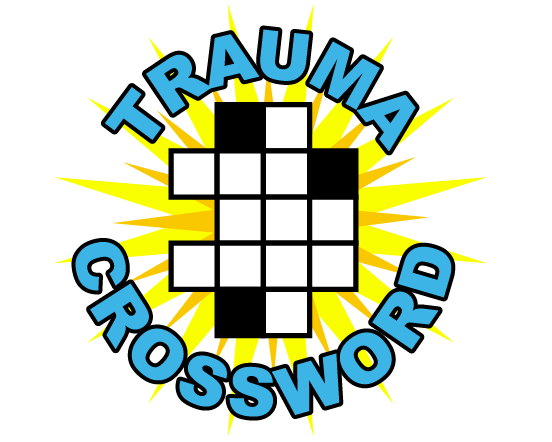|
|

|
*|MC_PREVIEW_TEXT|*
09/09/2025
|
|
IT’S TRAUMA TUESDAY is
a Free Weekly Newsletter
Brought to you by
TCAR Education Programs
|
|
For nurses and other clinicians practicing anywhere
along the trauma care spectrum
|
|
|
|
|
|
Take a quick test of your trauma care knowledge
|

|

|

|
|
|

|
|
Article of the Week
How Common is Delirium After Major Trauma?
|
|
A recent multi-site UK study examined the impact of delirium on recovery in critically injured trauma patients. Of 285 participants, 63% reported experiencing delirium during hospitalization, with higher rates seen in those with traumatic brain injury. At 12 months post-injury, delirium was linked to poorer quality of life scores, more days with functional difficulties, and greater psychological—rather than physical—problems. Despite this, fewer than half of delirium patients received psychological support, highlighting a critical gap in post-trauma care and the need for early delirium risk identification and long-term mental health follow-up.
|
|
|
|
Christie R, Cole E. Delirium after major trauma critical care and the association with recovery at 12 months. Trauma. 2025.
|
|
|

|
|
Media of the Month
Facial Fractures: Who Stays and Who Goes?
|
|
This recent post on the EMCrit blog explores the evaluation and transfer considerations for patients with facial fractures. Dr. Scott Weingart highlights a newly published algorithm that helps guide decision-making regarding which fracture patterns warrant transfer to a higher-level trauma center versus those that may be safely managed locally with outpatient follow-up. The algorithm aims to support evidence-based triage and optimize resource utilization while ensuring patient safety. This blog features a podcast interview with Dr. Joseph Bellal, the lead author of the guideline, offering additional insights into the study's findings and clinical implications. This resource may be especially valuable for emergency and trauma clinicians navigating disposition decisions in real time. See for yourself at the link below.
|
|
|
|
|

|

|
|
OOPS! A Point of Clarification
|
|
Last week's TEP News & Tips described the new verification certificates, wallet cards, and embroidered name tag stickers. These FREE items are available to anyone who started and passed a TCAR or PCAR course on or after February 3, 2025. If you began a course anytime before that date, our new printing company isn't able to retroactively recognize your achievement. Apologies for the confusion, but thank you for your enthusiasm for the latest style certificates. We are delighted to introduce them.
|
|
|
|
|
|
You can reveal a letter or the entire word if you get stuck
|

|

|

|
|
|

|

|
|
Did Florence Nightingale invent the pie chart?
|
|
No, Florence Nightingale did not invent the pie chart. That distinction belongs to Scottish engineer William Playfair, who came up with the idea in 1801. However, Nightingale was a very canny nurse and statistician. She pioneered statistical visualization and used graphical representations of data to advocate for sanitary reforms in hospitals and during the Crimean War. Flo's most famous contribution is the "coxcomb" or "rose" diagram, a variation of the pie chart that powerfully illustrated the causes of death among soldiers.
|
|
|
|
|

|
|
|
|
|
|
Follow Us
Want to join the trauma care conversation?
Follow Us on Facebook, Instagram, and X.
|

|
|
|
|
|

|
|
TCAR Education Programs
tcarprograms.org
info@tcarprograms.org
Office: (503) 608-4900
International Toll-Free: +1 800-800-2015
|
|
|
|
Copyright © 2025 TCAR Education Programs. All rights reserved.
You are receiving this email because you opted in by purchasing or registering for a course or subscribing to our newsletter on our website.
Want to change how you receive these emails?
You can
update your preferences or
unsubscribe
|